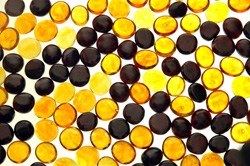Increased applicability of glass coatings
Coatings are applied to numerous materials to protect them from wear and oxidation. Glass-based coatings are a subclass of such technologies particularly applicable to chemical reactors, injection moulding machines and concrete construction components, among other. Conventional industrial processes for producing thick glass coatings, such as enamelling and glazing, are limited both in terms of the types and sizes of substrates to which they can be applied given that they require the use of a high temperature furnace. European researchers supported by funding of the ‘High-performance glass-based coatings’ (Glascoat) project sought to develop novel processing technology enabling thick glass coatings with enhanced properties and without the use of a furnace. Specifically, investigators focused on a variation of thermal spraying called flame spraying in combination with near-infrared (IR) crystallisation to develop high performance nano-structured glass-ceramic coatings and glass-based nanocomposite coatings not previously produced. Recent sol-gel techniques were used to produce the nano-structured particles to be used in the flame spraying process, enabling the deposition of nanocomposite coatings whose processing previously required the use of very high temperatures. Investigators employed computational models to simulate and optimise process parameters and developed novel spray gun designs to be used in flame spraying. Glascoat’s technologies should enable the spray coating of glass-ceramics and glass-based nanocomposites to substrates of composition and size previously out of reach with potential applications to machine tools as well as to the textiles and automotive industries. Commercial exploitation of project results could boost the European glass coating industry currently in decline due to lack of knowledge-based development and competition from low wage countries, with positive impact on European jobs and the economy.







